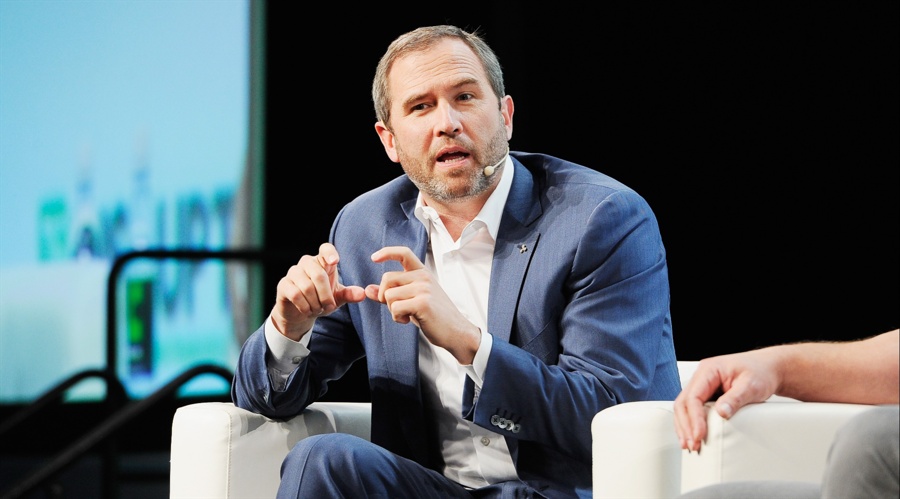瑞波因首席执行官的 “误导性陈述 ” 而面临新的民事诉讼
Ripple Labs 因首席执行官 Brad Garlinghouse 在 2017 年的一次采访中做出的 “误导性陈述 ” 而面临另一起民事证券诉讼.

Ripple Labs is facing another civil securities lawsuit for “misleading statements” made by its CEO, Brad Garlinghouse, in a 2017 interview. A California federal court judge has greenlighted the lawsuit but denied a summary judgment, meaning a jury will hear the case.
A Statement Made in 2017
In an interview with Canada’s BNN Bloomberg in 2017, Garlinghouse mentioned that he was “very, very long” on XRP, the digital token of Ripple. However, the lawsuit alleges that, in reality, he “sold millions of XRP” in that same year.
In his order on 20 June, Judge Phyllis Hamilton dismissed four allegations around Ripple’s “failure to register XRP as a security.”
Ripple is already facing a separate lawsuit from the Securities and Exchange Commission (SEC), which alleges that XRP is a security. Last July, the New York federal court ruled that the sale of XRP on exchanges and through algorithms did not violate any American securities law; however, sales to institutions did.
In the California court, Ripple also argued that the allegations of “misleading statements” should be thrown out as XRP is not a security under the Howey test. The blockchain company's lawyers also cited the order of the New York court to strengthen their arguments.
XRP Could Be a Security
However, the California federal court’s judge remarked that XRP could be a security when sold to non-institutional investors, as they would have expected profits from Ripple’s efforts.
“The court declines to find as a matter of law that a reasonable investor would have derived any expectation of profit from general cryptocurrency market trends, as opposed to Ripple’s efforts to facilitate XRP’s use in cross-border payments, among other things,” the judge noted.
“Accordingly, the [court] cannot find as a matter of law that Ripple’s conduct would not have led a reasonable investor to have an expectation of profit due to the efforts of others.”
Meanwhile, the SEC and Ripple are tussling over the agreement on the size of the civil penalty for the blockchain firm.
Initially, the SEC proposed $1.95 billion in recovery and civil penalties from the blockchain company. However, Ripple heavily opposed that civil penalty amount and came up with a $10 million figure in civil penalty instead of $876 million, citing the recent settlement of the regulator with bankrupt Terraform Labs. In its response, the regulator defied the lowered amount, saying that “it would not satisfy the purposes of the civil penalty statutes.”
Ripple Labs is facing another civil securities lawsuit for “misleading statements” made by its CEO, Brad Garlinghouse, in a 2017 interview. A California federal court judge has greenlighted the lawsuit but denied a summary judgment, meaning a jury will hear the case.
A Statement Made in 2017
In an interview with Canada’s BNN Bloomberg in 2017, Garlinghouse mentioned that he was “very, very long” on XRP, the digital token of Ripple. However, the lawsuit alleges that, in reality, he “sold millions of XRP” in that same year.
In his order on 20 June, Judge Phyllis Hamilton dismissed four allegations around Ripple’s “failure to register XRP as a security.”
Ripple is already facing a separate lawsuit from the Securities and Exchange Commission (SEC), which alleges that XRP is a security. Last July, the New York federal court ruled that the sale of XRP on exchanges and through algorithms did not violate any American securities law; however, sales to institutions did.
In the California court, Ripple also argued that the allegations of “misleading statements” should be thrown out as XRP is not a security under the Howey test. The blockchain company's lawyers also cited the order of the New York court to strengthen their arguments.
XRP Could Be a Security
However, the California federal court’s judge remarked that XRP could be a security when sold to non-institutional investors, as they would have expected profits from Ripple’s efforts.
“The court declines to find as a matter of law that a reasonable investor would have derived any expectation of profit from general cryptocurrency market trends, as opposed to Ripple’s efforts to facilitate XRP’s use in cross-border payments, among other things,” the judge noted.
“Accordingly, the [court] cannot find as a matter of law that Ripple’s conduct would not have led a reasonable investor to have an expectation of profit due to the efforts of others.”
Meanwhile, the SEC and Ripple are tussling over the agreement on the size of the civil penalty for the blockchain firm.
Initially, the SEC proposed $1.95 billion in recovery and civil penalties from the blockchain company. However, Ripple heavily opposed that civil penalty amount and came up with a $10 million figure in civil penalty instead of $876 million, citing the recent settlement of the regulator with bankrupt Terraform Labs. In its response, the regulator defied the lowered amount, saying that “it would not satisfy the purposes of the civil penalty statutes.”
免责声明:本文观点来自原作者,不代表Hawk Insight的观点和立场。文章内容仅供参考、交流、学习,不构成投资建议。如涉及版权问题,请联系我们删除。